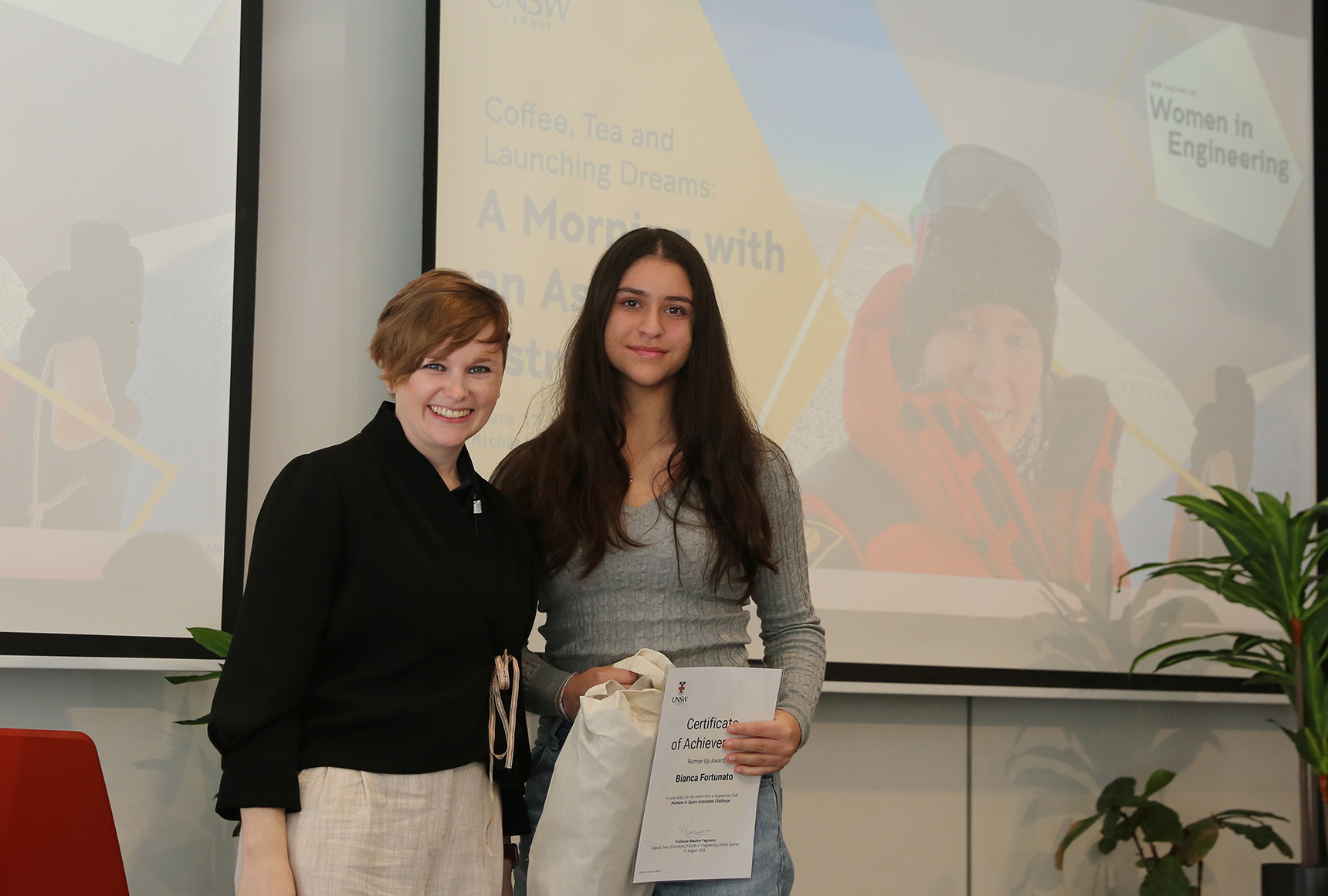Year 9 student, Bianca Fortunato, has been presented with an award by engineer, chemist and astronaut, Meganne Christian, for earning second place in the UNSW Young Women in Engineering Humans in Space Innovation Challenge!
The competition invites students to design innovations that will help maintain the wellbeing of astronauts in space and a panel of judges was impressed by Bianca’s proposal to utilise water from the moon’s frozen poles to create clean oxygen and fuel.
Bianca’s design proposal, called the “Hydro-LunarLift: SpaceLife System”, builds on technology first ideated by NASA scientists, which splits water into hydrogen gas and oxygen gas by running a current through it, a process called electrolysis. In NASA’s concept, the oxygen is stored in tanks for astronauts to breathe, while the hydrogen is combined with excess carbon monoxide, and is vented into space.
Bianca’s proposed changes to this innovation include collecting water from the moon’s poles, which can provide a safe and sustainable flow of water without tapping into earth’s resources. She also proposed that the “waste” product from the process, the hydrogen, could be used for fuel, rather than being released as wastage.
Bianca submitted her proposal, along with a detailed list of resources required to initiate the technology and a summary of the engineers who would need to provide input into the design and development of the project.
Bianca has been recognised a number of times by STEM professionals for her passion and ingenuity in STEM projects that she has undertaken outside her normal classwork.
Bianca enjoyed her time at the award ceremony at UNSW, where she was inspired by guest speaker, Meganne Christian, a trailblazer with a degree in Engineering, a PhD in Industrial Chemistry, astronaut’s training and experience working as a scientist in Antarctica. Meganne spoke to the audience about the rigorous selection process, physical training and mental stamina required to become an astronaut, as well as the importance of space research and its surprising impacts on our everyday lives.

